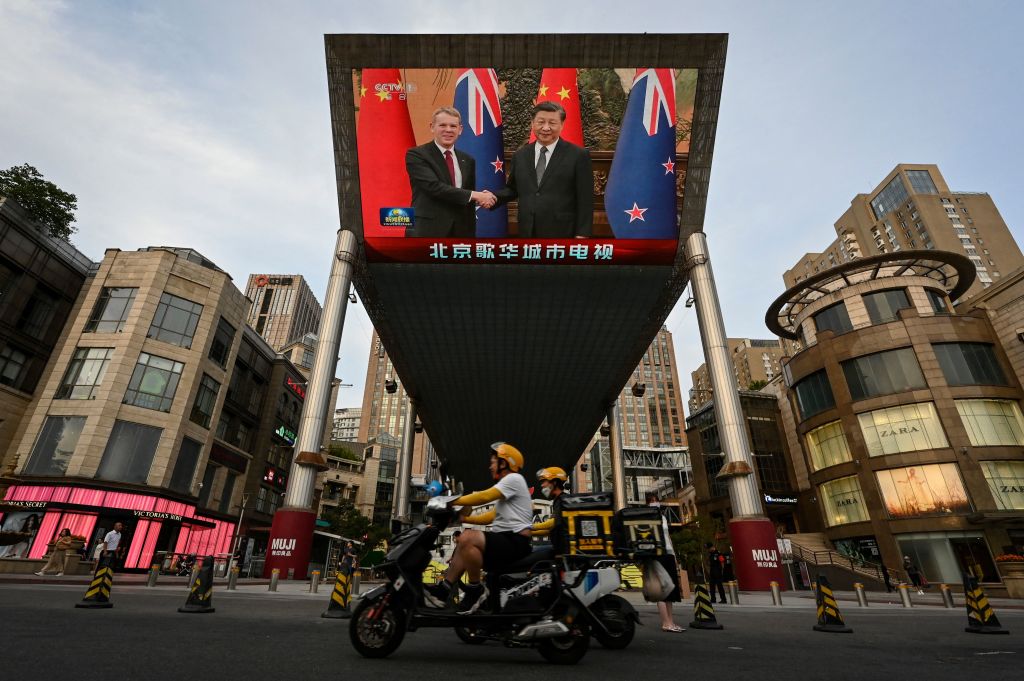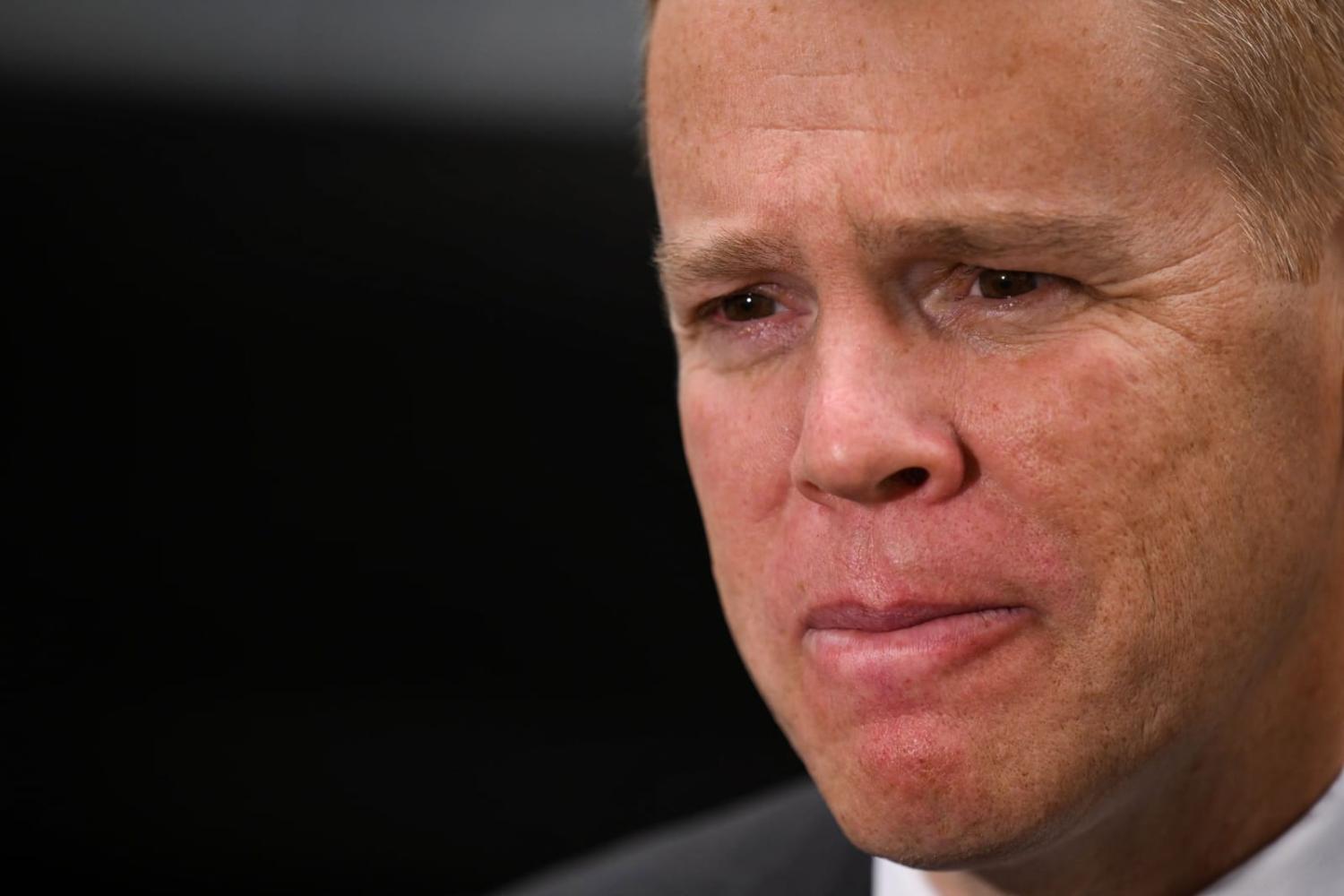Before jetting off on a whirlwind trip to Brussels, Stockholm, and the NATO Summit in Vilnius last Friday, New Zealand Prime Minister Chris Hipkins gave a speech setting out his vision of the country’s foreign policy. Besieged by domestic policy challenges for much of his six months in office, it was Hipkins’ first big set-piece address on New Zealand’s place in the world.
Unsurprisingly, much was made of the “independent foreign policy”, the importance of export markets, and New Zealand’s close relationships with Australia, the United States, Europe and the Pacific. Indeed, Hipkins said “if you came here today hoping for a radical departure in our foreign policy, I’m sorry to let you down.”
But the PM did himself a disservice. The back half of Hipkins’ speech did in fact hint at a new approach for dealing with the challenges of what he called “a more contested and difficult world”. After detailing a range of emerging threats, he said “we can’t be passive. We need to invest in our defence and security capabilities at home”. He announced that his government would soon release “an interrelated series of strategic policy documents and assessments, spanning across New Zealand’s national security, foreign and defence policy, including New Zealand’s first National Security Strategy.”
The first of those documents dropped Tuesday morning, with the release of the Ministry of Foreign Affairs and Trade’s 2023 Strategic Foreign Policy Assessment. Billed as an internal ministry document to help inform and ensure policy coherence for ministry staff at home and abroad, it paints a picture of a much more worrying international landscape for New Zealand.
The Assessment talks about three big shifts in the world: a move “from rules to power”, from “economics to security”, and from “efficiency to resilience”. Collectively, it says these changes mean “many of the assumptions in relation to global and regional affairs that have underpinned New Zealand’s foreign policy for a generation or more are coming under real and sustained pressure.”
On the move from rules to power, Russia’s invasion of Ukraine has reshaped the global landscape. The Assessment uses the classic “certain countries” formulation to worry about the growing use of coercion, but goes on to say the “Chinese government has more assertively pursued diplomatic, trade, security and development initiatives aimed at enhancing China’s influence, shaping international approaches, challenging international rules and norms, and promoting China’s vision in these areas.” It worries about “reinvigorated hard power dynamics, such as nuclear deterrence and increased defence spending”.

Closer to home, the Assessment uses pointed language to note the Pacific is no longer “strategically benign”, adding that the “risk of a shift in the strategic balance in the Pacific is now a present and serious concern”. This, it says, not only threatens Pacific countries’ ability to make their own choices – it also presents a risk to “New Zealand’s own security”.
The economic picture is equally gloomy. It warns “New Zealand can no longer rely on the durability of continuing trade liberalisation and international cooperation, which have been the foundation of its foreign, trade and economic policies for decades.” The globalising era of seemingly ever deeper integration has come to an end. States are increasingly turning towards protectionism and industrial policy to manage strategic risk and respond to a series of problems such as climate change. This means “New Zealand will be less able to prioritise economic priorities” and will need to “devote more energy and resources to defence and security imperatives, including to shore up economic resilience”.
And although the document doesn’t give up on multilateral institutions, (“they will remain vital”) it’s hard not to contrast the strikingly different tone with the language former prime minister Jacinda Ardern used to use to frame New Zealand’s approach to international affairs. It notes the challenges of forging cooperation on a host of issues that matter to New Zealand – on everything from human rights to disarmament – and says that as well as defending the existing system, New Zealand will have to invest in “new norms and frameworks”.
The document concludes with the blunt assessment: “foreign policy will have to change to reflect this new reality”.
To put it mildly, MFAT is hardly known for its production of sweeping foreign policy statements. These strategic assessments take place every three years, but an unclassified version has not been issued before, so a public release is telling in itself. Based on Hipkins’ speech, we can expect MFAT’s views to soon be joined by a National Security Strategy authored by the Department of Prime Minister and Cabinet, and work out of the ongoing Defence Policy Review. If recent comments from those parts of government are anything to go by, they are hardly likely to be cheerful reading. There might be few surprises for the foreign policy community, but the real aim is to shift public understanding.
Will all this paper make any difference to government priorities or spending?
Last week, Hipkins said the documents would help the government “inform our decision making around ongoing investments in a combat-capable defence force including interoperability of all our assets like people, intelligence, tech, AI, and defence hardware”. He emphasised the importance of “building and sustaining a public conversation on national security, by being more upfront about what we are observing”.
With a general election just three months away, and New Zealanders facing a host of domestic challenges, it’s hard to imagine foreign and security policy issues will suddenly leap to the top of the political agenda. But perhaps they are about to rise in importance. Perhaps Hipkins is a bit more of a radical than he liked to let on.

